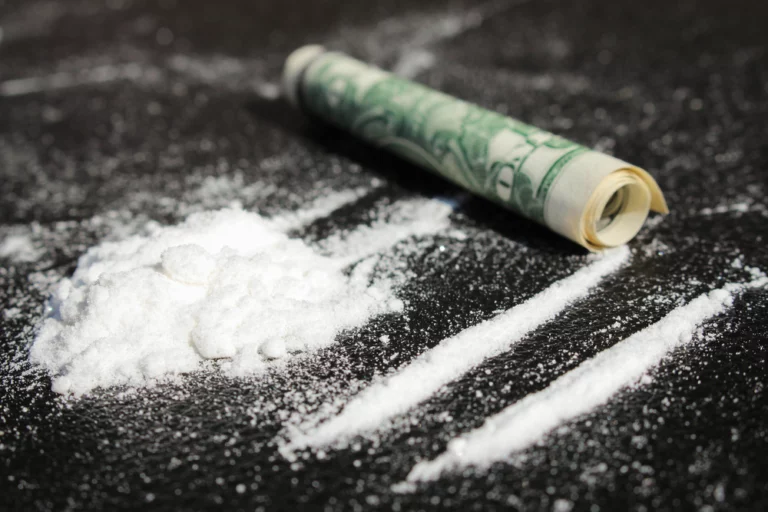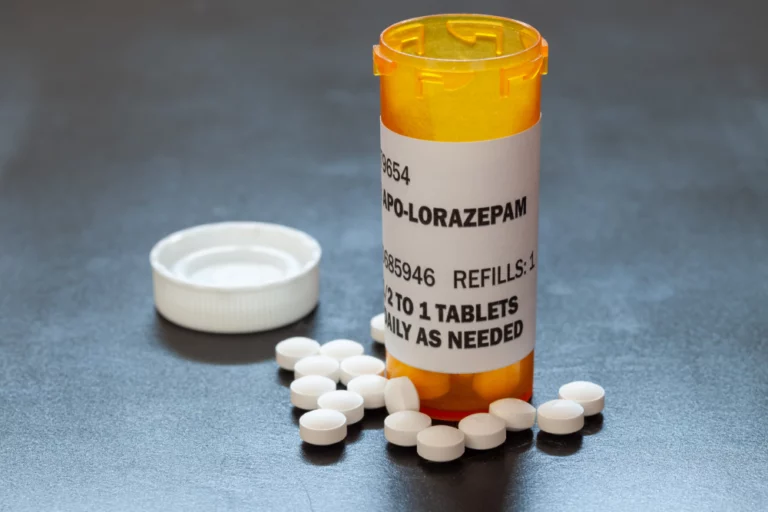Why is heroin so addictive? This dangerous and destructive drug can be incredibly damaging to your life. Have you found yourself struggling with heroin addiction? If so, know that professional heroin addiction treatment is your only real way out. Perhaps you tried heroin once and didn’t really know what you were getting yourself into, and now you have become stuck.
We at Asheville Detox understand your dilemma and are here to help you. If you are like many others, perhaps you have questions about heroin such as “why is heroin so addictive?” that you would like to have answered. Here are the answers to a few common topics that many people wonder about concerning heroin.
Why Is Heroin So Addictive?
It’s not uncommon to try heroin just once and quickly become addicted. But why is heroin so addictive? Experts point to its rapid and intense effects on the brain.
When heroin is inhaled, smoked, or injected, it floods the brain with pleasure almost instantly, creating an overwhelmingly rewarding high. This immediate rush is a key reason why heroin is so addictive—it hijacks the brain’s reward system, making the experience hard to resist.
Over time, heroin causes significant chemical changes in the brain. It disrupts the brain’s ability to produce natural feel-good chemicals like dopamine on its own, leaving users dependent on the drug to feel any sense of pleasure. This can help you better understand the complexities of why is heroin so addictive.
As tolerance builds, more heroin is needed to achieve the same high, trapping users in a cycle of addiction. Without heroin, individuals often struggle to feel happiness or normalcy, which is another reason why heroin is so addictive. Its ability to rewire the brain and create dependency makes it one of the most challenging substances to quit.

You might try to stop using heroin, but as a result, you start feeling sick, almost like you have the flu. You may be unable to sleep or eat and as you become uncomfortable, you find it hard to focus on anything but wanting to use heroin. Without professional help, you return to using heroin again. This has become your pattern of addiction, and this is why it has become so addictive for you.
How Does Heroin Addiction Alter Your Behavior?
When you are addicted to heroin, it becomes the number one priority in your life. Because of this, there are sure to be behavioral changes that appear in an individual. Here are some red flags that you or a loved one has become addicted and are in need of heroin addiction treatment.
- You possess drug paraphernalia
- Your personality is different
- Valuables or money have gone missing
- There are track marks on your body
- You are having legal problems
- Being secretive or lying
- Using heroin intermittently
Those who are addicted to heroin often display aggressive behavior, feel depressed, and separate themselves from social engagements. New associates may appear, who may appear disheveled and have track marks.
What Are the Medications for Heroin Addiction Treatment?
Methadone is the most widely used medication to treat opioid use disorders, including heroin addiction, and has been a cornerstone of treatment for over 40 years. A synthetic opioid agonist, methadone works by targeting the same opioid receptors in the brain that heroin affects, but it does so in a controlled and gradual manner.
This helps eliminate withdrawal symptoms and relieve drug cravings without producing the intense euphoria associated with heroin.
By stabilizing brain chemistry, methadone provides individuals with a chance to focus on recovery without the constant struggle of cravings. This is particularly important when considering why heroin is so addictive—its ability to hijack the brain’s reward system creates a cycle of dependence that is incredibly difficult to break without medical intervention.
Buprenorphine is another effective medication used to combat heroin addiction. Like methadone, it reduces cravings and withdrawal symptoms by acting on opioid receptors, but it has a unique feature called a “ceiling effect,” which limits its potential for misuse and overdose.
Buprenorphine is available in various forms, including tablets, implants, and monthly injections, making it a flexible option for individuals at different stages of recovery. Its ability to provide relief without inducing euphoria makes it a valuable tool in addressing the physiological grip of heroin addiction.
Understanding why heroin is so addictive helps explain why medications like buprenorphine are so critical—they help rebalance the brain’s chemistry and reduce the overwhelming cravings that often lead to relapse.
Naltrexone is the third medication commonly used to treat opioid use disorder. Unlike methadone and buprenorphine, which activate opioid receptors, naltrexone works by blocking these receptors entirely. This means that if someone uses heroin or another opioid while on naltrexone, they won’t experience the pleasurable effects that reinforce addiction.
Naltrexone is typically administered as a monthly injection, providing long-lasting protection against relapse. This medication is especially useful for individuals who have already detoxed and are committed to maintaining sobriety.
By blocking the brain’s response to opioids, naltrexone addresses one of the key reasons why heroin is so addictive—its ability to create a powerful, rewarding high that keeps users coming back.
Together, these medications—methadone, buprenorphine, and naltrexone—offer hope and support to those struggling with heroin addiction. They address the physiological aspects of addiction, helping individuals break free from the cycle of dependence and focus on rebuilding their lives.
By understanding why heroin is so addictive and how these medications work, we can better appreciate their role in providing a pathway to recovery and long-term sobriety.

What About Heroin Addiction and Pregnancy?
When a pregnant mother uses heroin, the baby also becomes dependent upon it. Once the child is born, it often cries excessively and is irritable, has fevers, gains weight slowly, may have seizures, tremors, diarrhea, vomiting, and their life may even be threatened. This condition is known as neonatal abstinence syndrome or NAS. In order to relieve symptoms, the baby is often given small amounts of morphine.
What can be done for an expectant mother who is addicted to heroin? According to the National Institute on Drug Abuse, giving buprenorphine treatments to opioid-dependent mothers is safe for both the unborn child and for the mother. This means that there is help and hope for you and your unborn baby if you are addicted to heroin.
Why Are Relapse Rates So High Among Heroin Users?
Understand the answers to why is heroin so addictive can help us understand why relapse rates are so high. Wouldn’t it be nice if all you had to do was go through rehab for heroin addiction and never have to worry about being tempted to use it again?
Unfortunately, this is rarely the case. Relapse rates among heroin users are some of the highest of any drug. But why is this the case? Why is heroin so addictive, and what makes it so difficult to break free from its grip?
One of the main reasons individuals relapse with heroin is due to its strong physiological power. Heroin is incredibly addictive because it alters the actual structure and pathways of the brain. When heroin enters the brain, it is converted into morphine and binds to opioid receptors, creating an intense rush of euphoria.
Over time, the brain becomes dependent on this chemical reward, making it extremely difficult to function without the drug. Additionally, heroin deteriorates some of the brain’s white matter, which impairs decision-making, self-control, and the ability to cope with stress. This is why many people struggle to resist cravings and relapse when faced with challenges—heroin rewires the brain in ways that make sobriety a constant battle.
Another reason why heroin users often relapse is that they have underlying issues, such as mental health disorders, that they fail to address. Conditions like depression, anxiety, or trauma are common among individuals struggling with addiction.
If a treatment program doesn’t tackle these mental health problems during recovery, it can be nearly impossible to stay clean from heroin. This is why holistic approaches that address both addiction and mental health are so important. Understanding why heroin is so addictive also means recognizing how it often becomes a coping mechanism for deeper emotional pain.
Some heroin addicts relapse because they return to the same environments that triggered their addiction in the first place. Being around people, places, or situations associated with past drug use can reignite cravings and make it difficult to stay on track.
This is why it’s critical to avoid the same people and environments that you frequented when using heroin. Building a new, supportive network and creating a healthier lifestyle are essential steps in maintaining long-term recovery.
So, why is heroin so addictive? It’s a combination of its powerful impact on the brain, its ability to mask emotional pain, and the challenges of breaking free from the environments that enable its use. Overcoming heroin addiction requires more than just willpower—it demands comprehensive treatment, ongoing support, and a commitment to addressing the root causes of addiction.
By understanding the complexities of why heroin is so addictive, individuals and their loved ones can better navigate the path to recovery and build a brighter, drug-free future.

Receive Help at Asheville Detox
If heroin has led you down a dark path, know that professional heroin addiction treatment can help make it right again. We at Asheville Detox know how to guide you towards making a real and lasting change that will positively impact you and your loved ones. Contact or call our team of friendly and discreet professionals today and head back in the right direction.







